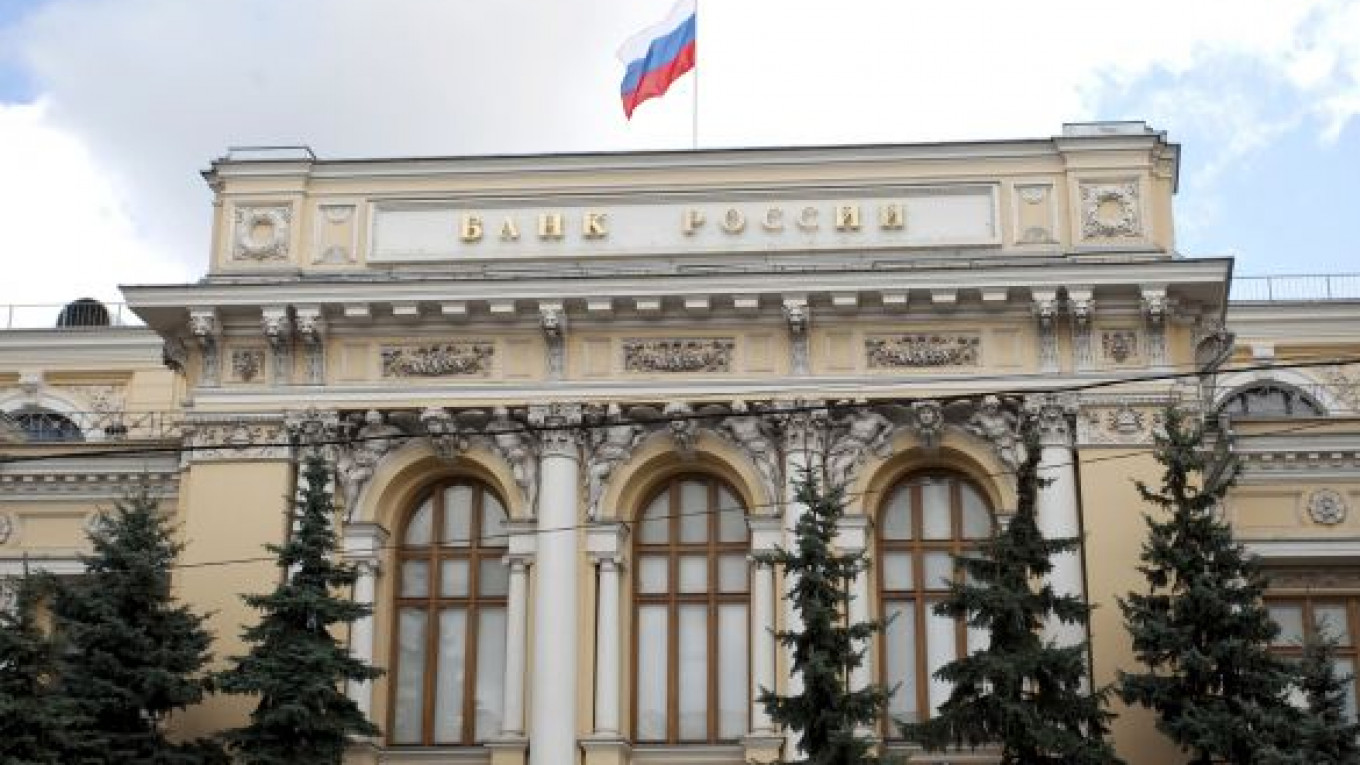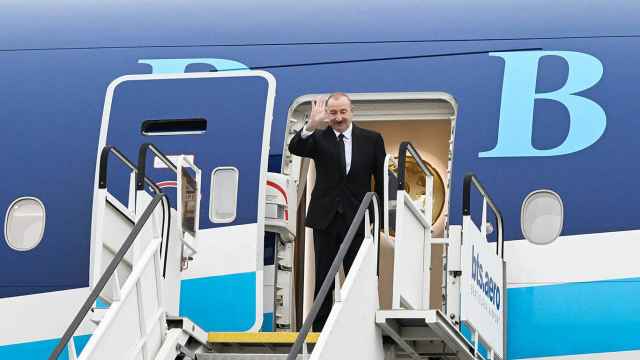The Central Bank has increased sales of bonds to a record 1 trillion rubles ($34 billion), a fivefold surge from a year ago, in a bid to limit inflation by absorbing excess funds from banks.
The amount of OBRs, or Obligatsii Banka Rossii, outstanding jumped from 17.5 billion rubles in August 2009, according to data compiled by Troika Dialog. The yield on the Central Bank’s 612.9 billion rubles of six-month OBRs due Dec. 15 fell to 3.97 percent Tuesday from 4.25 percent at a June sale, according to data compiled by Bloomberg.
Banks are snapping up the notes because they can finance the purchases by borrowing at lower rates, Troika chief economist Yevgeny Gavrilenkov said. The overnight MosPrime rate declined to 2.76 percent Wednesday from 3.47 percent at the end of April, according to data compiled by Bloomberg.
“The Central Bank has started offering a nice, risk-free business to banks that gives them returns of 130 to 170 basis points for doing nothing but simply borrowing on the market, inflating the balance sheet, buying Central Bank bonds and borrowing even more on the market the following day using the bonds as collateral,” Gavrilenkov and economist Anton Struchenevsky said in an Aug. 2 research note.
Russia uses OBRs to remove rubles from the market, left over after Central Bank transactions to control the exchange rate. Central Bank chairman Sergey Ignatyev’s policies have helped curb inflation to a 12-year low of 5.5 percent in July as the economy recovers from its worst contraction on record.
The Central Bank has accumulated the world’s third-biggest international reserves by purchasing foreign currency to prevent the ruble from appreciating, according to Central Bank data. Foreign-currency holdings rose to $461 billion in June from $413 billion a year earlier.
Implied volatility on one-month dollar-ruble options in the past six months averaged 3.26, compared with 8.45 a year earlier, data compiled by Bloomberg show. The ruble is 1.5 percent stronger against the dollar this year.
The Central Bank, which has two OBRs outstanding, issued 5.1 billion rubles of bonds maturing Dec. 15 in a July 22 auction at a 3.95 percent yield, data compiled by Bloomberg show. The yield on 467.4 billion rubles of six-month OBR securities due Sept. 15 rose 1 basis point to 3.53 percent on Wednesday, from 4.7 percent in March.
The difference between the MosPrime rate and the yield on the OBR security due Dec. 15 narrowed to 70 basis points on July 27, before widening to 120 on Wednesday as the interbank rate fell. The gap between the two rates was 169 on June 15.
The Central Bank’s bond sale program risks backfiring by creating surplus liquidity when the securities mature, Gavrilenkov said.
“Sooner or later the money must go back” into the system, Gavrilenkov said Tuesday. “If this liquidity returns en masse, it could put pressure on the ruble to weaken.” The Central Bank’s press office declined to comment Tuesday.
The Central Bank will be able to keep drawing in surplus rubles from the economy unless there’s a consensus that the currency is overvalued, which isn’t the case now, according to Elina Ribakova, Citigroup’s chief economist.
“The excess liquidity will stay put and continue going into the Central Bank,” Ribakova said. “Either it will go into deposits with the Central Bank or Central Bank paper. For now, the status quo with liquidity will continue,” she said.
A Message from The Moscow Times:
Dear readers,
We are facing unprecedented challenges. Russia's Prosecutor General's Office has designated The Moscow Times as an "undesirable" organization, criminalizing our work and putting our staff at risk of prosecution. This follows our earlier unjust labeling as a "foreign agent."
These actions are direct attempts to silence independent journalism in Russia. The authorities claim our work "discredits the decisions of the Russian leadership." We see things differently: we strive to provide accurate, unbiased reporting on Russia.
We, the journalists of The Moscow Times, refuse to be silenced. But to continue our work, we need your help.
Your support, no matter how small, makes a world of difference. If you can, please support us monthly starting from just $2. It's quick to set up, and every contribution makes a significant impact.
By supporting The Moscow Times, you're defending open, independent journalism in the face of repression. Thank you for standing with us.
Remind me later.






